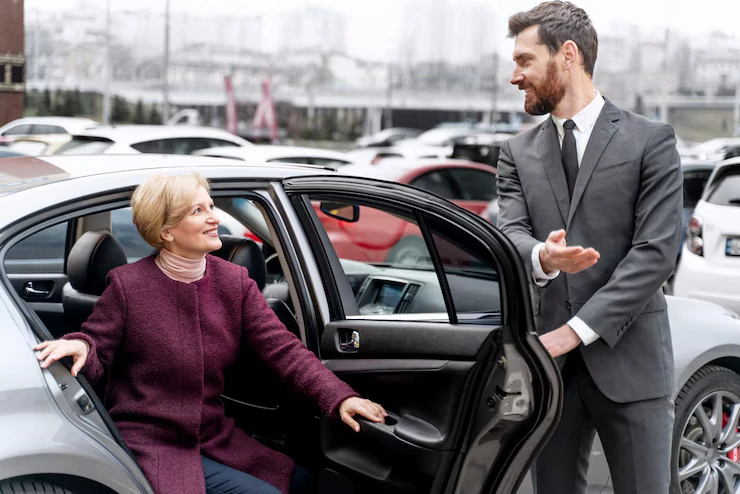Introduction
Small business auto insurance is one of the most important and often misunderstood tools for protecting vehicles used in your business. Many small business owners wonder whether personal auto insurance is enough or if commercial coverage is necessary.
While both options offer vehicle protection, the differences between insurance for small business vehicles and personal auto insurance go far beyond price. From coverage limits to liability protection and how each policy applies in real-world business use, it’s essential to know when small business auto insurance is the right fit.
In this article, we break down the key differences between small business auto insurance and personal auto insurance so you can make a smart, informed choice for your company.

What is Personal Auto Insurance?
Personal auto insurance is designed to protect individuals when they drive their own vehicles for personal use. It typically covers situations where you are involved in an accident while driving for non-business purposes.
Personal auto insurance policies generally include coverage for:
- Liability: Covers bodily injury and property damage to others if you’re at fault.
- Collision: Covers damage to your vehicle in case of a collision with another vehicle or object.
- Comprehensive: Covers damages to your vehicle caused by incidents other than accidents, such as theft, fire, or vandalism.
- Medical Payments: Pays for medical expenses if you’re injured in an accident.
This type of insurance is ideal for everyday drivers who only use their vehicle for personal errands, commuting, or recreational activities.
What is Small Business Auto Insurance?
Small business auto insurance, also known as commercial auto insurance, is designed for business owners who use vehicles as part of their business operations. This coverage is essential for businesses that own or operate vehicles for work-related purposes, such as delivery services, transporting employees, or carrying business equipment. Small business auto insurance covers similar risks as personal auto insurance but with added protection for business-related activities.
A commercial auto policy typically includes:
- Liability Coverage: For damages and injuries caused by a business vehicle during its operation.
- Physical Damage: Covers damage to the business vehicle itself in case of an accident, whether it is a collision or vandalism.
- Medical Payments: Pays for medical expenses if an employee or driver gets injured while driving the vehicle for work.
- Uninsured Motorist Coverage: Protects your business if you’re involved in an accident with an uninsured driver.
This insurance is crucial for businesses that use vehicles to carry out their daily operations.
Key Differences Between Personal and Small Business Auto Insurance
While both personal and small business auto insurance policies provide protection for vehicles, the key differences lie in the coverage and the use of the vehicle.
Here are some of the primary distinctions:
| Aspect | Personal Auto Insurance | Small Business Auto Insurance |
| Usage | Covers personal, non-business-related driving. | Covers vehicles used for business purposes, including delivery. |
| Coverage Limits | Generally lower coverage limits. | Higher coverage limits due to business risks. |
| Employee Coverage | Does not cover employees driving the vehicle. | Covers employees using the vehicle for business tasks. |
| Protection for Business | Does not cover business-related activities or cargo. | Includes protection for business equipment or transported goods. |
| Premium Costs | Typically less expensive. | More expensive due to higher coverage and business risks. |
Why Small Business Owners Need Commercial Auto Insurance
Small business owners need commercial auto insurance to ensure their vehicles are adequately covered while being used for business purposes. Using personal auto insurance for business-related activities can lead to coverage gaps, especially if the vehicle is involved in an accident while on a business task. In many cases, personal auto insurance will not cover damages or injuries resulting from the use of the vehicle in business operations.
Some common reasons small business owners should opt for commercial auto insurance include:
- Business Use of Vehicles: If you use a vehicle for transporting goods or employees, commercial coverage is essential.
- Higher Coverage Needs: Business operations typically involve higher risks, requiring higher coverage limits.
- Employee Coverage: If your employees drive company vehicles, they need to be covered under commercial insurance.

What Does Personal Auto Insurance Cover?
Personal auto insurance policies generally cover basic protections for drivers and their vehicles.
These include:
- Liability Insurance: Covers bodily injury or property damage that you cause to others while driving your vehicle.
- Collision Insurance: Pays for damages to your vehicle if you’re involved in a collision, regardless of fault.
- Comprehensive Coverage: Covers damage to your vehicle from non-collision events like theft, vandalism, or weather-related damages.
- Medical Payments or Personal Injury Protection (PIP): Covers medical expenses for you and your passengers after an accident.
- Uninsured/Underinsured Motorist: Pays for damages if you’re hit by someone who doesn’t have insurance or sufficient coverage.
Personal auto insurance is generally sufficient for individuals who only use their vehicles for personal use and don’t engage in business activities.
What Does Small Business Auto Insurance Cover?
Small business auto insurance provides more extensive coverage compared to personal auto insurance due to the higher risks involved in using a vehicle for business purposes.
Common types of coverage under a small business auto insurance policy include:
- Liability Coverage: Protects the business if an employee causes injury or property damage while driving for work purposes.
- Physical Damage Coverage: Covers the repair or replacement of a company vehicle if it’s damaged in an accident, theft, or natural disaster.
- Cargo and Equipment Coverage: If you transport goods or equipment in the vehicle, this coverage protects your business assets from damage or loss during transit.
- Hired and Non-owned Vehicle Coverage: Covers vehicles rented or used occasionally by the business for work-related activities.
This coverage ensures that all business-related vehicle operations are protected, reducing the financial risk associated with commercial vehicle use.
Cost Comparison: Small Business Auto Insurance vs. Personal Auto Insurance
The cost of small business auto insurance typically exceeds that of personal auto insurance due to the higher risks involved in business activities. Premiums for business auto insurance are influenced by several factors, such as the type of business, the number of vehicles, and the extent of coverage required.
Here are some factors that affect the cost:
- Vehicle Type: Commercial vehicles generally cost more to insure than personal cars.
- Business Location: Insurance costs may vary based on the location where the business operates.
- Driving Records: A clean driving record can lower premiums, while a history of accidents or claims may increase rates.
While personal auto insurance is typically more affordable, it’s crucial to understand that using a personal policy for business purposes can lead to costly gaps in coverage.

How to Decide Between Personal and Business Auto Insurance
Choosing between personal and business auto insurance depends on how you use your vehicle. If you are a small business owner who uses your vehicle exclusively for personal purposes, personal auto insurance is sufficient.
However, if you use the vehicle for business-related activities, such as transporting goods, employees, or equipment, then commercial auto insurance is necessary to ensure adequate coverage. It’s important to assess how your vehicle is used on a day-to-day basis and consult with an insurance agent to determine the best policy for your needs.
In some cases, you may also need a combination of both types of insurance.
Conclusion
Understanding the difference between personal and small business auto insurance is essential for small business owners. While personal auto insurance may be sufficient for personal use, business-related activities require more specialized coverage that only small business auto insurance can provide.
By understanding the coverage options, costs, and risks, small business owners can ensure that their vehicles and operations are properly protected. When in doubt, it’s always advisable to consult with an insurance professional to determine the best insurance strategy for your business needs.


3 Comments
Pingback: What Does a Typical Restaurant Insurance Policy Cover? - small business insured
Pingback: Pressure Washing Business Insurance Guide
Pingback: Business Insurance for Electrical Contractors Guide